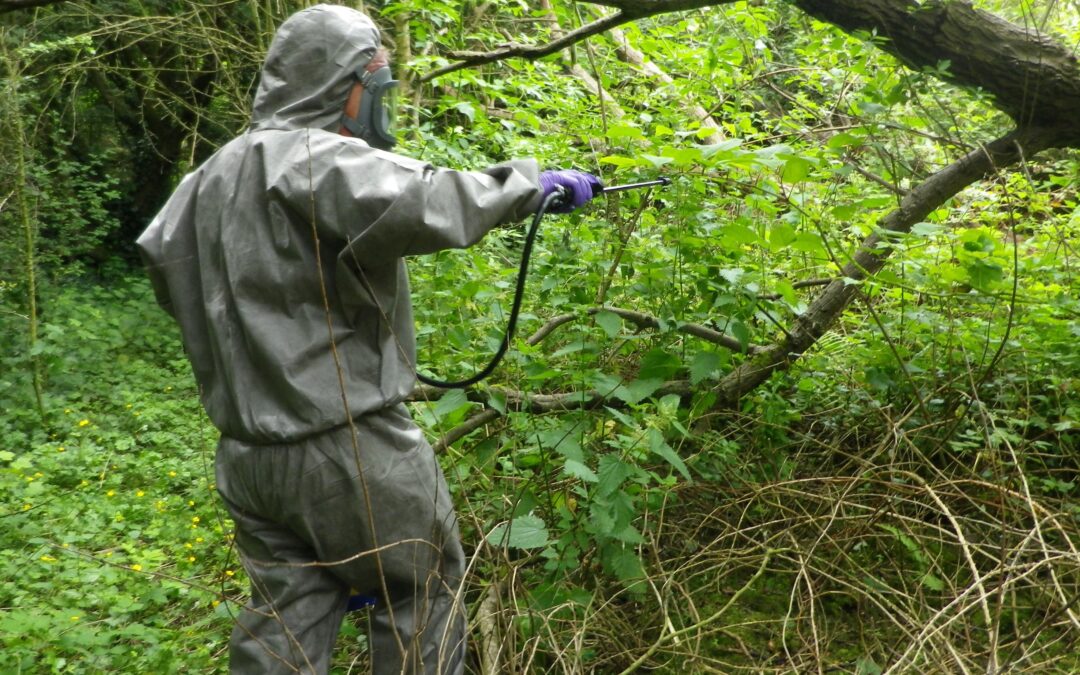I get asked a lot. Do you have to report Japanese knotweed in your garden?
There is no legal requirement to report the presence of Japanese knotweed in your garden to the local council. However, it is considered good practice to inform your neighbours of the infestation.
Moreover, if you knowingly allow Japanese knotweed to spread from your garden to a neighbour’s garden. The local council may take action against you. This is because Japanese knotweed is an invasive species that can cause damage to property and the natural environment.
Here are some of the actions that the local council may take:
Serve a notice: The local council may serve you with a notice requiring you to control the Japanese knotweed and prevent it from spreading. This notice may also require you to remove the plant from your property and dispose of it properly.
Issue a fine: If you fail to comply with the notice, the local council may issue a fine or penalty notice. This can be a significant amount of money and can increase over time if the problem is not resolved.
Prosecution: In serious cases, the local council may take legal action against you. This can result in a fine or even imprisonment.
Property devaluation: If the Japanese knotweed spreads to your neighbour’s property, they may take legal action against you for damages. This can include the cost of removing the plant and any loss in property value.
If the local council considers your failure to control the spread of Japanese knotweed as anti-social behaviour, Additionally they may consider issuing an ASBO. This would be a rare occurrence and would depend on the specific circumstances and severity of the situation.
It’s important to note that if you are aware of Japanese knotweed on your property. You have a legal obligation to control it and prevent it from spreading to neighbouring properties. If you fail to do so, you may face serious consequences.
If you’re planning to sell your property,
You’re legally required to disclose any known knotweed infestation to any potential buyers. The TA6 form is a standard form used in the United Kingdom for conveyancing transactions. It is specifically used to gather information regarding Japanese Knotweed on the property being sold. The form requires the seller to disclose whether they are aware of the presence of Japanese Knotweed on the property. or any adjacent land and to provide any information they have on the treatment and management of the plant. This information is important for potential buyers as Japanese Knotweed can cause damage to properties and be costly to eradicate.
Furthermore, if you’re planning to carry out any building works on your property, it’s important to inform your contractor about the presence of Knotweed,
If a building contractor is carrying out building work near Japanese knotweed, several measures should be put in place to prevent the spread of the plant and to comply with legal requirements:
Conduct a site survey: Before any construction work, a site survey should be conducted. This to determine the presence of Japanese knotweed on or near the site. If Japanese knotweed is present, a management plan should be put in place.
Put in place a management plan: A management plan should be developed to ensure that the Japanese knotweed is controlled and prevented from spreading. The plan should include measures such as using appropriate herbicides, implementing physical barriers. And ensuring that any waste containing Japanese knotweed is disposed of properly.
Train staff:
The building contractor should ensure that all staff working on the site are trained to identify Japanese knotweed and understand the risks associated with it. They should also be aware of the management plan and how to implement it.
Implement strict site rules: Strict site rules should be implemented to prevent the spread of Japanese knotweed. These rules may include measures such as ensuring that all machinery is cleaned before leaving the site, avoiding movement of soil from the site, and monitoring the site for any signs of new growth.
Ensure legal compliance: The contractor should ensure that they comply with all legal requirements related to the management and control of Japanese knotweed, including any requirements under the Wildlife and Countryside Act 1981 and the Environmental Protection Act 1990.
By putting these measures in place, the building contractor can help to prevent the spread of Japanese knotweed and ensure that they comply with legal requirements. In The UK, it’s considered a “Schedule 9” invasive species by the Wildlife and Countryside Act 1981. This means that it is illegal to plant or cause it to grow in the wild.
Therefore, it’s recommended to seek professional help to treat the Japanese Knotweed and prevent it from spreading
